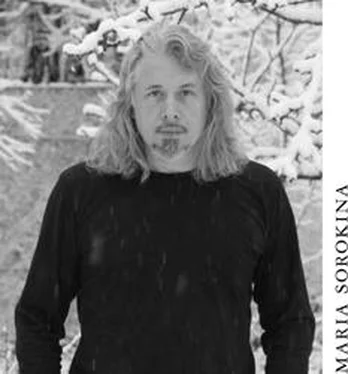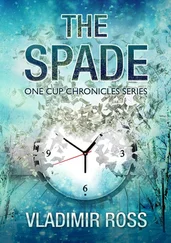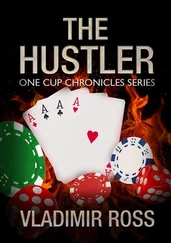Vladimir Sorokin - The Blizzard
Здесь есть возможность читать онлайн «Vladimir Sorokin - The Blizzard» весь текст электронной книги совершенно бесплатно (целиком полную версию без сокращений). В некоторых случаях можно слушать аудио, скачать через торрент в формате fb2 и присутствует краткое содержание. Год выпуска: 2009, ISBN: 2009, Издательство: Farrar, Straus and Giroux, Жанр: Старинная литература, на английском языке. Описание произведения, (предисловие) а так же отзывы посетителей доступны на портале библиотеки ЛибКат.
- Название:The Blizzard
- Автор:
- Издательство:Farrar, Straus and Giroux
- Жанр:
- Год:2009
- ISBN:9780374709396
- Рейтинг книги:4 / 5. Голосов: 1
-
Избранное:Добавить в избранное
- Отзывы:
-
Ваша оценка:
- 80
- 1
- 2
- 3
- 4
- 5
The Blizzard: краткое содержание, описание и аннотация
Предлагаем к чтению аннотацию, описание, краткое содержание или предисловие (зависит от того, что написал сам автор книги «The Blizzard»). Если вы не нашли необходимую информацию о книге — напишите в комментариях, мы постараемся отыскать её.
The Blizzard — читать онлайн бесплатно полную книгу (весь текст) целиком
Ниже представлен текст книги, разбитый по страницам. Система сохранения места последней прочитанной страницы, позволяет с удобством читать онлайн бесплатно книгу «The Blizzard», без необходимости каждый раз заново искать на чём Вы остановились. Поставьте закладку, и сможете в любой момент перейти на страницу, на которой закончили чтение.
Интервал:
Закладка:
“Let’s go, doctor, sir.”
The doctor followed, puffing on his cigarette. They walked along an empty, snow-covered village street. A good deal of snow had accumulated: it reached halfway up the doctor’s fur-lined knee-high boots.
“It’s coming down hard,” thought Platon Ilich, hurrying to finish his cigarette, which was burning quickly in the wind. “What the devil made me take a shortcut through this blasted station? It’s a godforsaken place, there are never any horses here in winter. I swore I wouldn’t, but, no! I had to go this way, Dummkopf . If I’d taken the high road, I’d have changed horses in Zaprudny and driven on, and so what if it’s seven versts farther, I’d be in Dolgoye by now. And the station there is well kept, and the road is wide. Dummkopf! Now you’re out somewhere on a wild goose chase!
Vasyatka energetically tramped through the snow ahead, swinging the identical travel bags like a woman carrying buckets on a yoke. Though the station was called the village of Dolbeshino, it was really just a settlement with ten farmyards scattered a fair distance apart. By the time they’d hiked down the powdery main road and reached the bread man’s house, Platon Ilich had begun to sweat a bit in his long coat. Snowdrifts had blown up against the old, sunken loghouse, and it looked like no one lived there. The only signs of human habitation were wisps of white smoke that the wind tore from the chimney.
The travelers passed through a front garden that was fenced off after a fashion, and stepped up onto the sagging, cracked porch, which was almost entirely buried in snow. Vasyatka gave the door a push with his shoulder and it turned out to be unlocked. They stepped into a dark entryway. Vasyatka bumped into something and said:
“Goodness … Ouch!” In the darkness, Platon Ilich could just make out two large barrels, a wheelbarrow, and a pile of junk. For some reason the bread man’s mudroom smelled like an apiary: beehives, caked pollen, and wax. The lovely summer aroma was totally at odds with the February blizzard. Vasyatka made his way with difficulty to the burlap-insulated door, opened it, and, grabbing one of the traveling cases under his arm, stepped over the high threshold:
“Hello in there!”
The doctor followed him in, ducking to miss the lintel overhead.
The izba was slightly warmer, lighter, and less cluttered than the mudroom: logs burned in a large Russian ceramic stove, a wood salt cellar stood by itself on the table, a round loaf of bread lay under a towel, a lone icon occupied a dark corner, and a pendulum clock hung on the wall like an orphan, stopped at half past six. The only pieces of furniture the doctor noticed were a chest and an iron bed frame.
“Uncle Kozma!” Vasyatka called out, carefully setting the traveling cases on the floor.
No one replied.
“Maybe he’s out in the courtyard?” Vasyatka turned his wide freckled face with its ridiculous, peeling red nose toward the doctor.
“What is it?” came a voice from the top of the stove, and a head with tangled red hair, a shaggy beard, and sleepy slits for eyes appeared.
“Hello, Uncle Kozma!” Vasyatka cried out joyfully. “There’s a doctor here’s in a hurry to get to Dolgoye, but there ain’t no horses at the station.”
“So?” He scratched his head.
“Well, you could take him there on the sledmobile.”
Platon Ilich walked over to the stove:
“There’s an epidemic in Dolgoye, and I must be there today, without fail. Without fail!”
“Epidemic?” The bread man rubbed his eyes with big, calloused fingers that had dirty nails. “I heard about it. They was talkin’ about it at the post office in Khoprov just yesterday.”
“There are sick people waiting for me there. I’m bringing the vaccine.”
The head on the stove disappeared, then the stairs creaked and squeaked. Kozma descended, in a fit of coughing, and came out from behind the stove. He was a short and stunted, skinny, narrow-shouldered man about thirty years old, with crooked legs and the kind of oversized hands tailors often have. His nose was sharp. His face, puffy with sleep, was kind and tried to smile. He stood barefoot in his underclothes in front of the doctor, scratching his tousled red hair.
“A vax-seen?” he said respectfully and cautiously, as though he was afraid to drop the word on his worn, cracked floorboards.
“A vaccine,” the doctor repeated, and took off his fox-fur hat, which had made him feel overheated right away.
“But there’s a blizzard, doctor, sir.” Crouper glanced at the dimmed window.
“I know there’s a blizzard! And there are sick people waiting for me!” the doctor raised his voice.
Scratching his head, Crouper went to look out the window, which was insulated with hemp chinking stuffed in around the sides.
“I didn’t even fetch the bread today.” He flicked a patch of window where the hoarfrost had melted from the stove’s heat, and looked out. “After all, man don’t live by bread alone, ain’t that right?”
“How much do you want?” The doctor was losing his patience.
Crouper looked back at him as though he expected to be beaten; he walked silently over to the right of the stove where there were buckets on the bench and shelves with earthenware pots and kettles, picked up a copper ladle, scooped some water out of the bucket, and began to drink so fast his Adam’s apple bobbed up and down.
“Five rubles!” the doctor proposed, in such a threatening tone of voice that Crouper flinched.
He began to laugh, wiping his mouth with his shirtsleeve:
“Now what would I be needing…”
He put the ladle down, looked around, and hiccupped.
“But, I … I just fired up the stove…”
“People are dying out there!” the doctor shrieked.
Avoiding the doctor’s gaze, Crouper scratched his chest and squinted at the window. The doctor stared at the bread man with such an expression on his tense, large-nosed face, it was hard to tell whether he was ready either to beat him or to burst into tears.
Crouper sighed and scratched his neck:
“Hey, youngster, you just…”
“Wha?” Vasyatka opened his mouth, not understanding.
“Sit tight. When it catches—close the flue.”
“I’ll do that, Uncle Kozma.” Vasyatka took off his sheepskin coat, tossed it on the bench, and sat down next to it.
“Your sledmobile … what power is it?” the doctor asked in relief.
“Fifty horses.”
“Good! We’ll be in Dolgoye in about an hour and a half. And you’ll drive back with five rubles.”
“Come on now, yur ’onor…” Crouper smiled, waved his claw-like hand, and slapped himself on his thin haunches. “Alrighty, let’s go harness up.”
He disappeared behind the stove and soon came out in a thick homemade gray wool sweater and padded pants held up almost to his chest by an army belt; he clutched a pair of gray felt boots under his arm. He sat down on the bench next to Vasyatka, tossed the felt boots on the floor, and began wrapping his footcloths.
The doctor went outside to smoke. Nothing had changed: gray sky, snow, wind. The farm seemed to have died—there wasn’t a human voice or dog’s bark to be heard.
Platon Ilich stood on the porch and inhaled the refreshing cigarette smoke. He was already thinking about tomorrow: “I’ll do the vaccinations at night and in the morning we’ll go to the cemetery and take a look at the graves. We have to hope that the weather hasn’t interfered with the quarantine; if someone made it through the lea pastures—you’ll never find him. In Mitino there were two cordons and even that didn’t help—they broke through, and started biting the population … I wonder if Zilberstein is there already. I hope he’s there! It’s easier to vaccinate when you’ve got four hands. He and I could get through the whole village in one night … But no, leaving from Usokh, he won’t get there before me … It’s forty versts, and in this weather … Just my luck … A storm like this…”
Читать дальшеИнтервал:
Закладка:
Похожие книги на «The Blizzard»
Представляем Вашему вниманию похожие книги на «The Blizzard» списком для выбора. Мы отобрали схожую по названию и смыслу литературу в надежде предоставить читателям больше вариантов отыскать новые, интересные, ещё непрочитанные произведения.
Обсуждение, отзывы о книге «The Blizzard» и просто собственные мнения читателей. Оставьте ваши комментарии, напишите, что Вы думаете о произведении, его смысле или главных героях. Укажите что конкретно понравилось, а что нет, и почему Вы так считаете.












